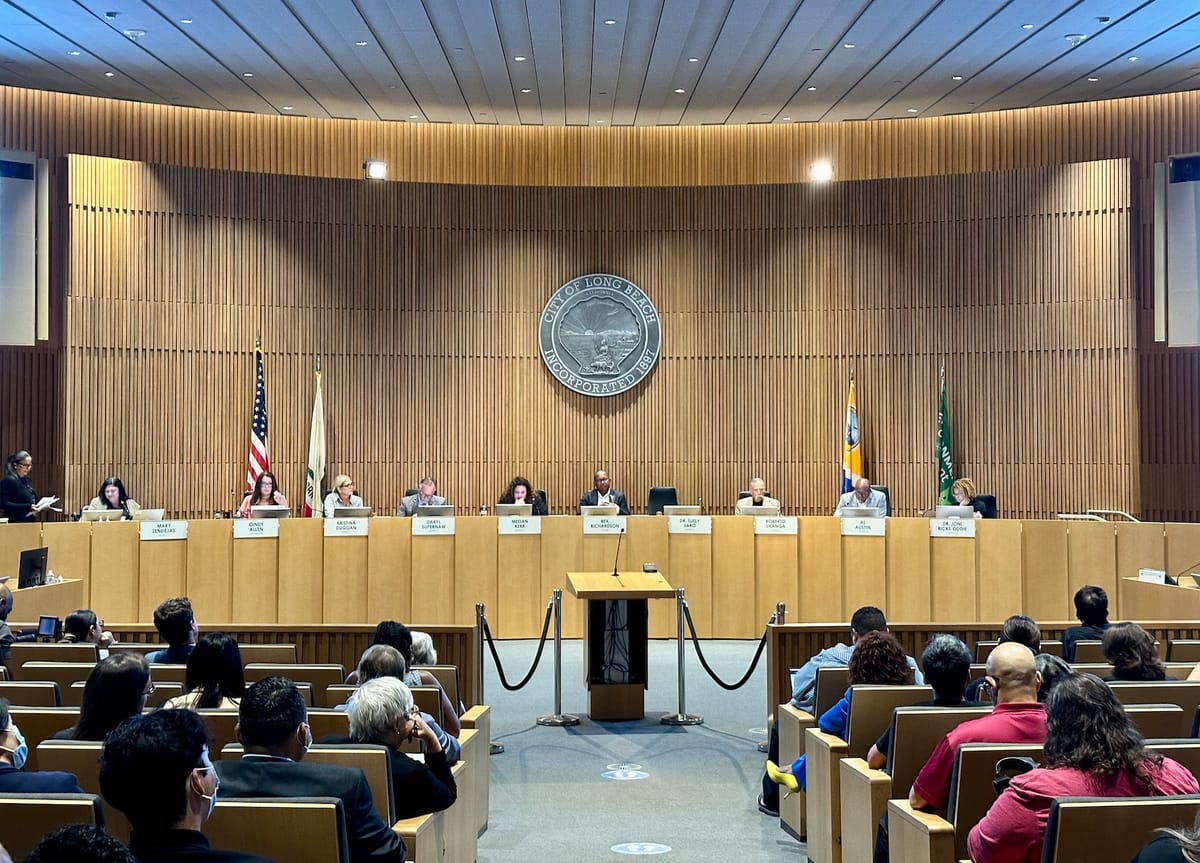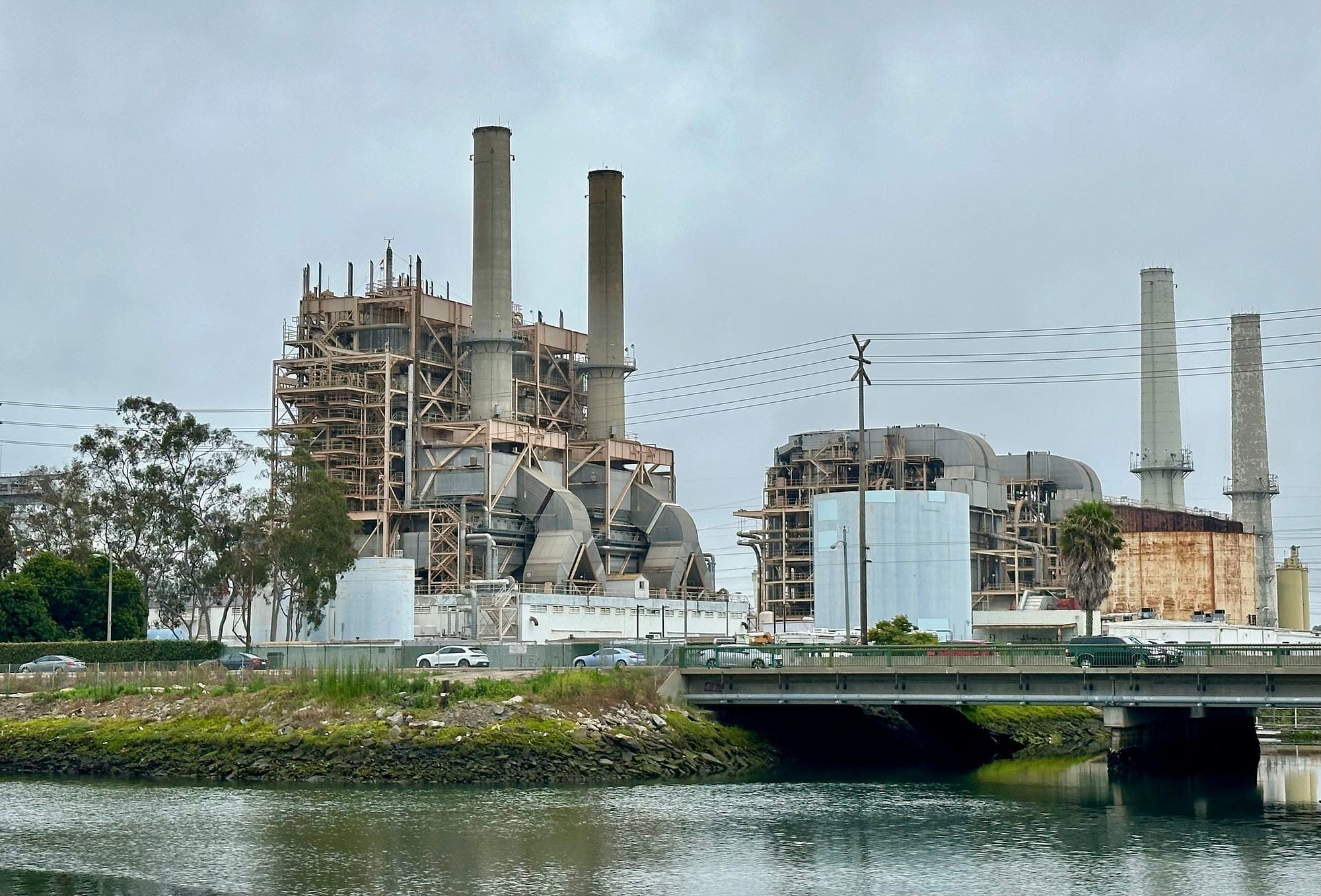Long Beach voters to decide fate of power plant exemption, city hiring process in November
Two charter amendments aimed at speeding up hiring in the city and a ballot measure that could raise $15 million annually by taxing two power plants will be on the Nov. 5 ballot.

Long Beach voters will get to decide this November if the city’s hiring process will be overhauled and if two power plants will have their decades-long exemption from paying a city utility tax ended after the City Council voted to put the issues on the Nov. 5 ballot.
Councilmembers voted unanimously Tuesday to send the issues to the voters this November and both will need over 50% voter support to pass. Ending the power plant exemption could generate about $15 million for the city, which is looking for a way to supplement its coffers as oil revenue begins to dry up.
But the charter amendment aimed at changing the city’s hiring process would strip away the city’s Civil Service Department, which has handled much of the city’s hiring for decades, and hand that authority over to the city’s Human Resources Department.
It would also create new hiring preferences for residents, graduates of area colleges, interns and existing city employees who are seeking full time employment with the city that supplement the existing preferences for veterans.
City officials say merit-based hiring will remain and the change is necessary to speed up the process, which takes about seven months on average, according to city data, and has contributed to an over 20% vacancy rate across all city departments.
Opponents have claimed that the change could lead to nepotism and cronyism making their way back into the city’s hiring process after the Civil Service process, which is in place to safeguard the city’s hiring process, goes away.
“This is Trump’s agenda,” said Robyn Gordon-Peterson, referring to former President Donald Trump’s platform that calls for the immediate firing of tens of thousands of federal employees if he’s reelected.
Gordon-Peterson serves as the president of the current Civil Service Commission and continued her public opposition to the charter amendment Tuesday.
“I do not want this for my community,” she said.
The full Civil Service Commission voted earlier this year to oppose the proposed charter amendment.
Mayor Rex Richardson, who has championed the charter amendment, and other city officials are adamant that the issue is about the speed of hiring and making sure that the city is able to deliver the services that residents expect, not hiring less qualified candidates.
“It’s time for us to wake up and get off our high horses and open up the doors of government,” Richardson said.

The idea of discontinuing the utility users tax exemption for the two power plants has been less controversial but hasn’t come without some pushback.
The city is facing a $61.5 million cumulative deficit over the next five years and the new impacts from a statewide oil production setback law could see oil revenue that has contributed tens of millions of dollars to the city’s budget annually begin to shrink faster than city officials had anticipated.
Long Beach surveyed residents on four potential new taxes, including a real property transfer fee that would have made it more expensive for property owners to sell and a doubling of the city’s business licenses fees, but only the power plant exemption polled high enough to consider putting it forward to voters.
“This is a choice,” City Manager Tom Modica said of letting voters decide if the exemption will stay in place. “Do they want to provide an alternative to potentially $61 million in cuts?”
AES and Los Angeles Department of Water and Power, the operators of the two plants, have opposed the measure saying that it could shift the financial burden to rate payers in Los Angeles, some of whom are living in poverty, and that the cost of the measure if it passes would be applied to Southern California Edison customers in Long Beach.
While initial city projections put that potential cost between 50 cents per year and $4 per month, city officials said Tuesday that Edison has expressed a willingness to work with the city on what will happen if the measure is approved by voters.
A second charter amendment would change the Harbor Department’s hiring process to align with the proposed changes that would take hold if voters approve the city’s hiring changes. It would also change the term limits of Harbor and Utility Commission members to three, four-year terms.
Currently Harbor Commissioner terms are six years and Utility Commissioner terms are five years.
The three issues will now be sent to voters who will decide both during the Nov. 5 election.

We need your support.
Subcribe to the Watchdog today.
The Long Beach Watchdog is owned by journalists, and paid for by readers like you. If independent, local reporting like the story you just read is important to you, support our work by becoming a subscriber.





